In a time of constant media exposure and fifteen second attention spans, it is now almost impossible to fully appreciate the larger-than-life fame and popularity of Muhammad Ali in the 1970s. The term “living legend” has become a meaningless cliché, but after stunning the world by dethroning George Foreman in 1974, Ali really did become the stuff of legend and myth, was truly larger than life.
Having stood up to the might of the U.S. government, he had, in the end, prevailed, a most improbable outcome. Stripped of the world heavyweight title and denied the right to compete for over three years after refusing to be drafted into the military, Ali was then, to the astonishment of all, not only exonerated by the U.S. Supreme Court, but re-crowned the world champion after defeating the most awe-inspiring heavyweight puncher since Joe Louis. Justice and vindication, not to mention political significance, attached itself to Ali’s resurgence, making it all bigger than sports and Ali, who had already become bigger than boxing prior to his stand against the Vietnam War, assumed the proportions of a demigod. The adulation spanned the globe and the world could not get enough of him.

“The Greatest” talked frequently about retirement in those days, but fame can be a prison. There were far too many people wanting to see the next Muhammad Ali fight and far too much money at stake for everyone involved. For many, Ali was a hero and an inspiration, but for the promoters, his manager, the television networks, his huge entourage, the media, and the sport of boxing itself, he was a lifeline, a living conduit for cold, hard cash. Books, television specials, comics, posters, games, toys, movies — Muhammad Ali was everywhere. Retirement? Forget it. Not just the most famous athlete in the world, but now one of the most famous people to ever walk the earth, Ali was, simply put, too successful for his own good.
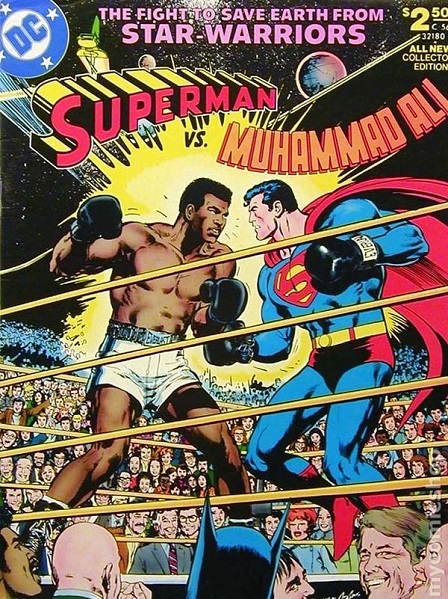
Of course the fact overlooked at the time was that Ali happened to preside over the most competitive heavyweight division in history. Neither before nor since have there been so many big, powerful, gifted boxers north of two hundred pounds. And while on occasion Ali enjoyed an easy outing against the likes of a Richard Dunn or a Jean-Pierre Coopman, the expectation remained that a true champion must defend his title against the very best. And in the 1970’s that meant such dangerous battlers as Joe Frazier, Ron Lyle and Earnie Shavers. And of course, one Ken Norton.
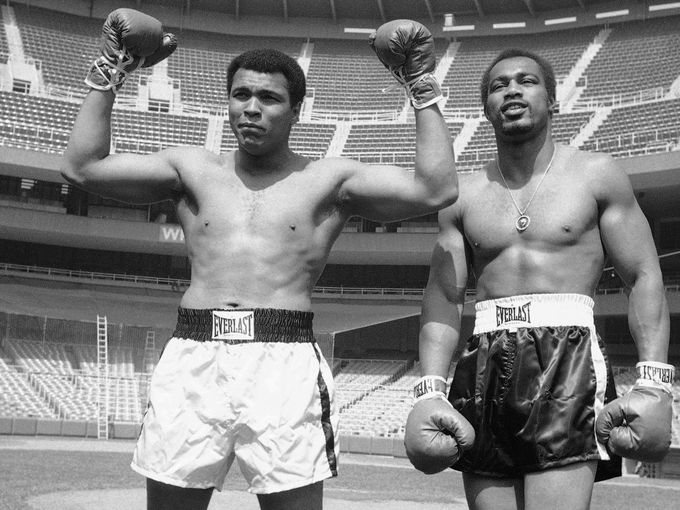
By 1976, Ali and Norton were old rivals, having split two close battles back in 1973. The first match in San Diego will always be remembered as “The Battle of Broken Jaw.” Ali, on the comeback trail after his defeat to Joe Frazier, entered the ring in something less than prime condition and paid the price when Norton, then a little-known contender, not only scored the upset victory, but sent Ali to the hospital with a fractured mandible.
The former champion insisted on an immediate rematch and whipped himself into perhaps the best condition of his career, but Ali vs Norton II was another tough, close struggle, and while Ali won by split decision, Norton’s cross-armed defense, powerful jab and counter-punching skills again gave “The Greatest” all kinds of trouble. If the narrow victory paved the way for Ali’s rematch win against Frazier and then his joyous coronation in Africa in 1974, there remained a widespread impression that unfinished business existed between the two. After Muhammad outlasted “Smokin’ Joe” in the grueling “Thrilla In Manila,” an Ali vs Norton rubber match became the biggest fight in boxing.
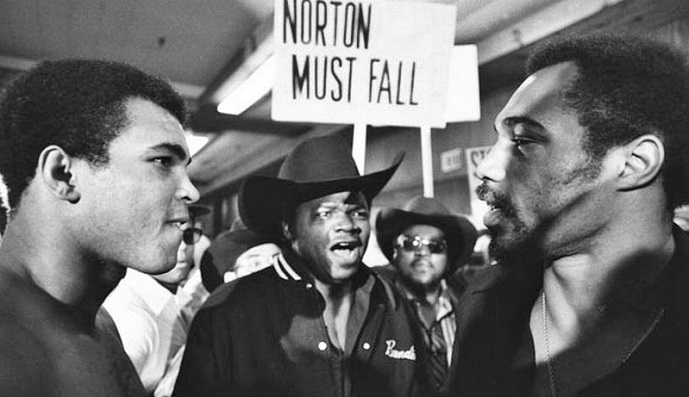
Despite a crushing knockout loss to Foreman in 1974, Norton had maintained his high standing with stoppage wins over Ron Stander and Jerry Quarry. Ali vs Norton III to decide once and for all who was the better man became a huge attraction, resulting in the biggest payday in boxing history up to that point, six million dollars for Ali. While the live gate was inhibited by a New York City police strike and the resulting chaos, millions around the world viewed the bout on closed-circuit television.
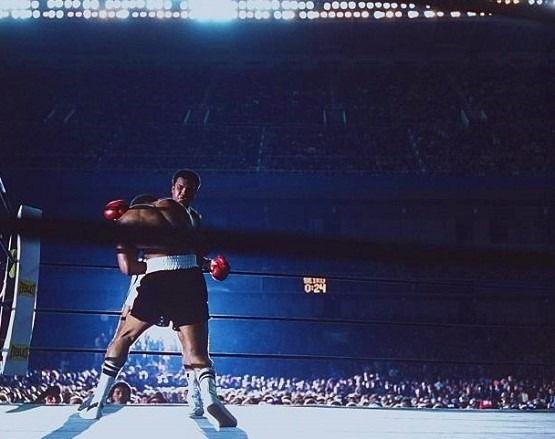
And almost five decades later, boxing fans still argue about this fight and the judges’ decision. A myth has accrued over the years that Norton was the victim of an obvious robbery, that Ali in no way deserved the razor-close though unanimous decision he received after fifteen rounds. But in truth, just like their first two meetings, Ali vs Norton III was highly competitive, at times difficult to score, and while Norton may have got the better of it by a shade, no blatant larceny took place. In the history of controversial heavyweight decisions, this was less Louis vs Walcott or Foreman vs Briggs, and more say, Holmes vs Witherspoon or Jimmy Ellis vs Floyd Patterson.
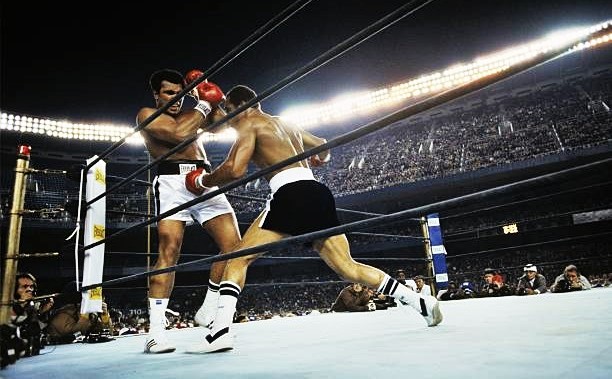
And the fact remains that in a close fight, and especially against a hugely popular champion, nothing can be taken for granted. Before the final round Norton’s corner made the fatal error of telling their fighter the decision was in the bag. Just play it safe, they instructed him, and make sure Ali doesn’t get lucky in the last three minutes. By contrast, the desperate champion fought round fifteen like his life depended on it, somehow summoning the strength and energy to dominate its first two minutes as the crowd chanted “Ali! Ali! Ali”, and thus saving his title by the slimmest of margins. Had Norton thrown caution to the winds and taken that final round, he would have won by split decision.
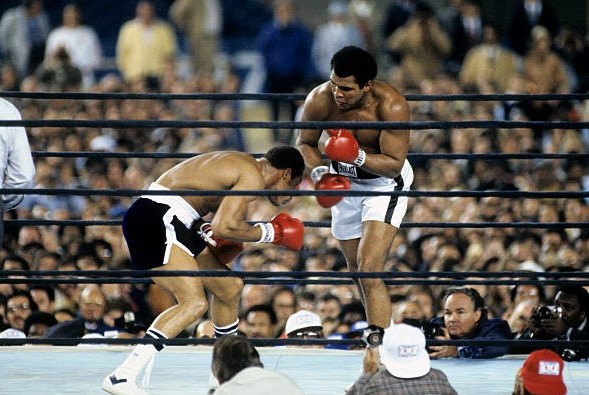
But while Ali had succeeded in eking out a very close points verdict, he had done so on little more than guts and guile. Anyone watching with a critical eye had to see he was at the end of the road. Less than two years before he had looked magnificent against Foreman, but now his timing seemed off, his legs sluggish, his chin more vulnerable than ever. The undeniable truth was that Ali’s brutal war with Joe Frazier the year before had extinguished his prime. And his hectic schedule of public events and exhibition fights—not to mention his farcical battle with Antonio Inoki which had put him in the hospital with serious leg injuries three months before—was also taking a significant toll.
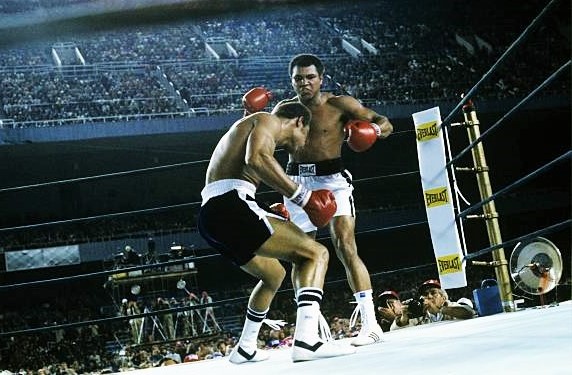
If ever there was a time for Muhammad Ali to acknowledge that he was human like the rest of us and walk away from the fight game to avoid the beatings and blows that lay ahead, it was after that third tough battle with Norton. According to those closest to him, the legendary champion knew it as well as anyone. But how could he stop? Not only thousands of fans in Yankee Stadium, but the whole world was chanting “Ali! Ali! Ali!” And while he had the strength and courage to defeat almost any man in the ring, sadly, Muhammad Ali lacked the will to resist the allure of his own legend.
— Michael Carbert
The post Sept. 28, 1976: Ali vs Norton III appeared first on The Fight City.

